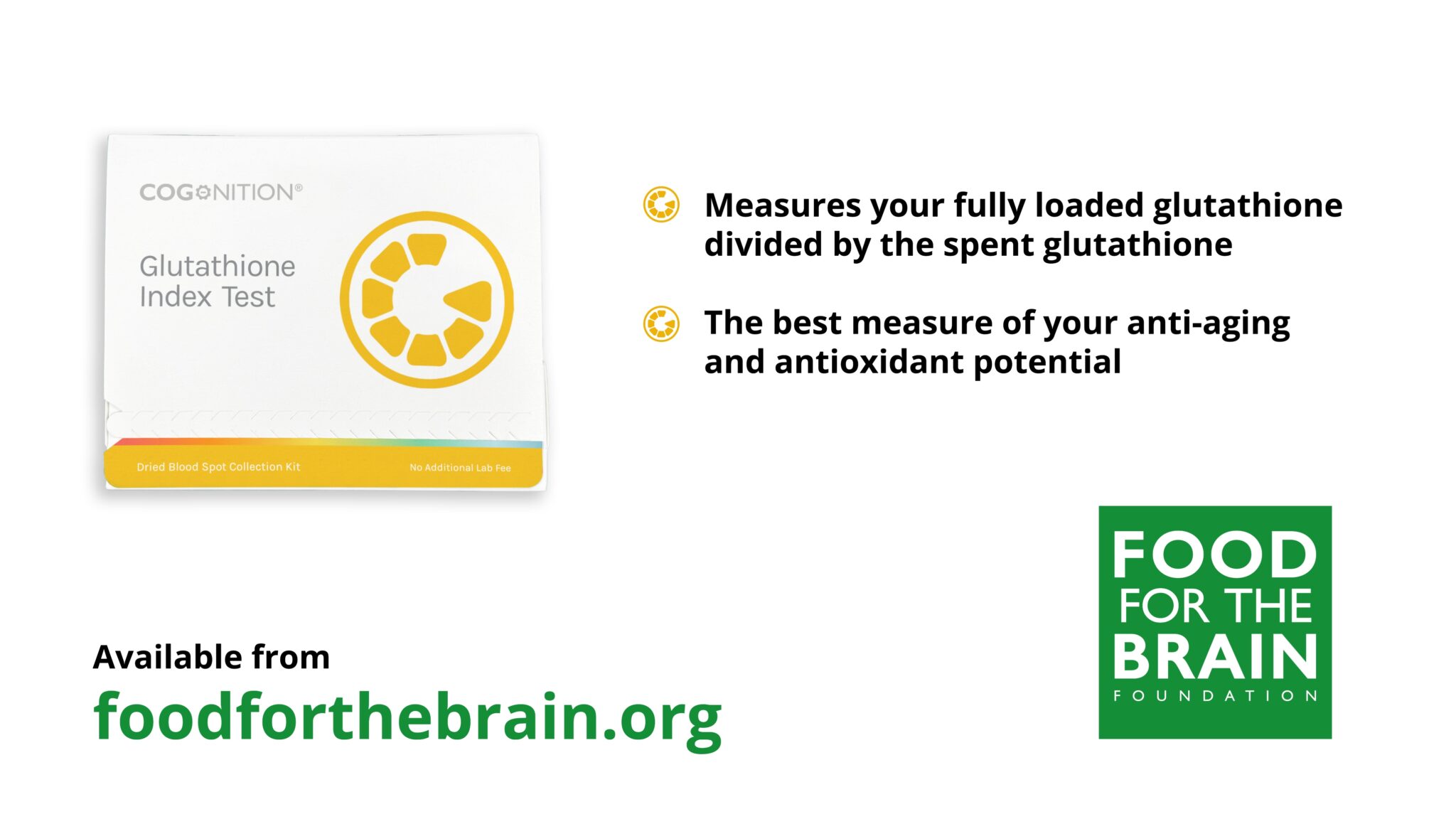Brain health charity Food For The Brain has announced the launch of a simple home pin-prick test, called the Glutathione Index, to help you know if your brain is ageing too fast – predicting your dementia risk.
The test measures the ratio between the fully loaded Glutathione and the spent Glutathione, called the Glutathione Index, which brain scientist have discovered identifies the risk for dementia.
The worse the ratio, the worse a person’s cognitive function is. “Patients with dementia have a reduction in glutathione and its ability to be recycled. This ratio, the Glutathione Index, is a biomarker for many diseases, including both type 1 and 2 diabetes, liver cirrhosis, multiple sclerosis and Alzheimer’s disease.” says Dr Konrad Kowalski, the analytic chemist in the brain team which has developed the Glutathione Index test at Food for the Brain’s lab.
“It’s too early to know the perfect number but it is looking like a Glutathione Index of 500 means your brain can roll with the punches, while below 200 a person definitely needs to be both changing their diet and supplementing antioxidants. Having a way to measure brain ageing with a home test kit from a pin prick of blood, means we can realistically see what the impact of specific diet changes and antioxidant supplements might be.”
Inside cells, especially brain cells, glutathione is the most potent antioxidant of all. “It is the master antioxidant” says Patrick Holford who chairs the Alzheimer’s Prevention Project scientists at the charity foodforthebrain.org. “Your glutathione status is the best measure of your anti-ageing potential, keeping brain and body actively rejuvenated.”
“Every second there are hundreds of thousands of metabolic ‘fires’ going on inside the energy factories in our brain cells. Think of Glutathione as the water in the fire engine. It gets rapidly used up keeping your brain protected. The ‘spent’ or oxidised glutathione, much like steam, then has to be cooled to reload the fire engine. This is done by vitamin C and an enzyme called Glutathione Reductase, returning Glutathione back to its fully loaded active antioxidant form. How Glutathione and vitamin C recycle each other is one of the hottest discoveries in brain anti-ageing.”
Foodforthebrain.org is looking for volunteers to take the blood test, which costs £69, and complete a Cognitive Function Test and a diet and lifestyle questionnaire now, then in three months, and again six months later. The volunteers will also follow, as best as possible, personalised advice on how to increase their antioxidant potential to anti-age their brain.
To join the Anti-Age Your Brain project visit www.foodforthebrain.org/antiage
Watch this film to understand how antioxidants work as team players: https://vimeo.com/986506745





